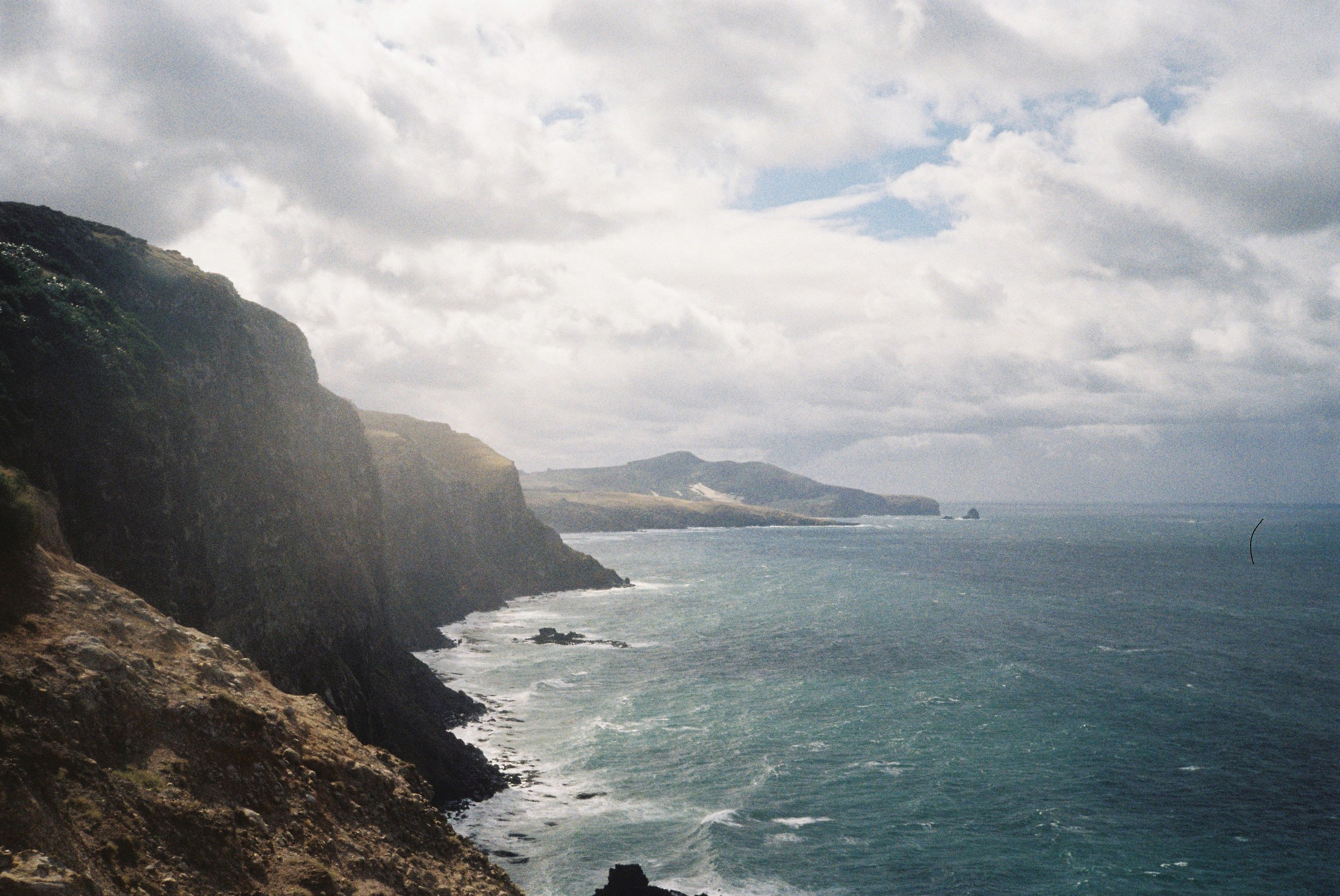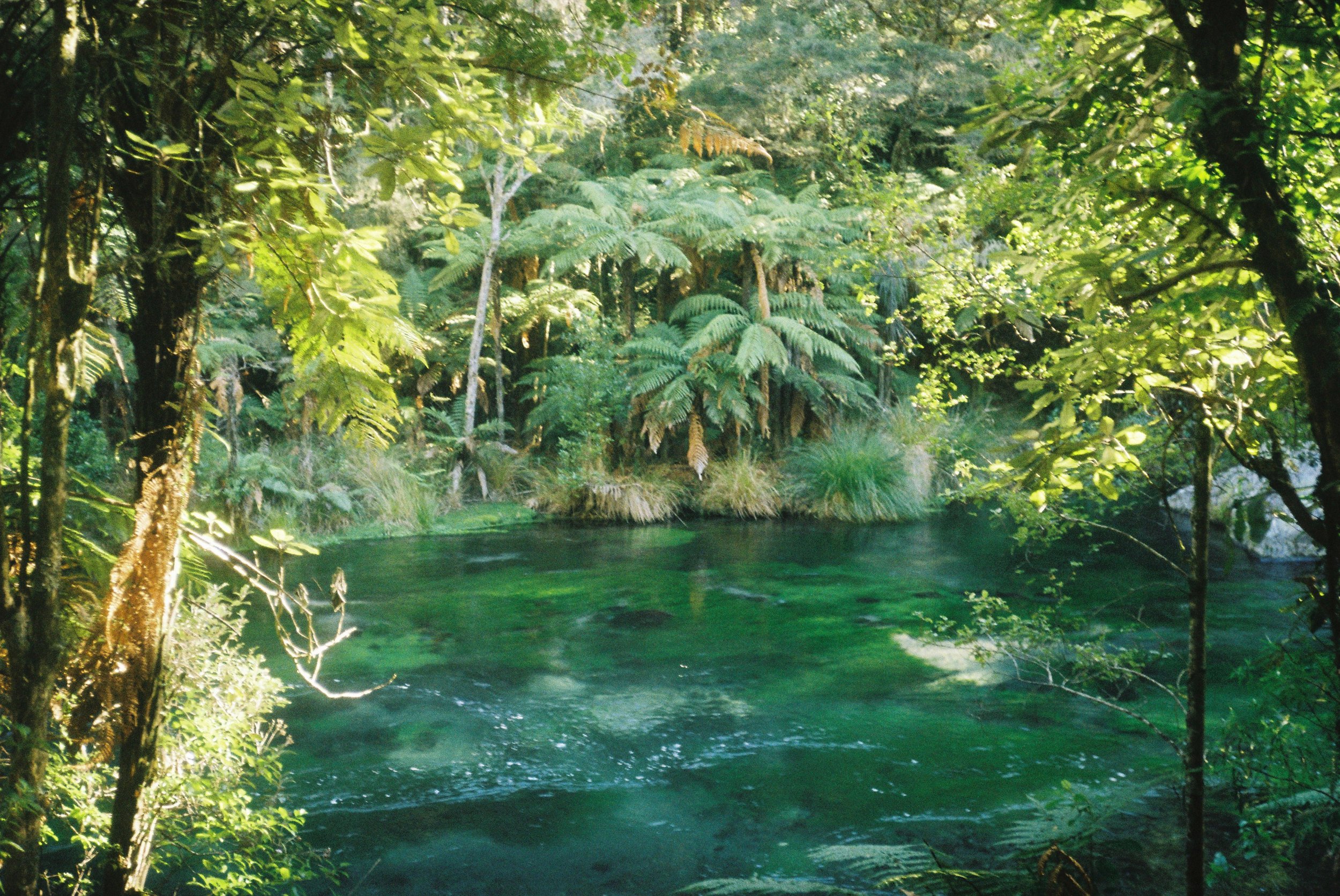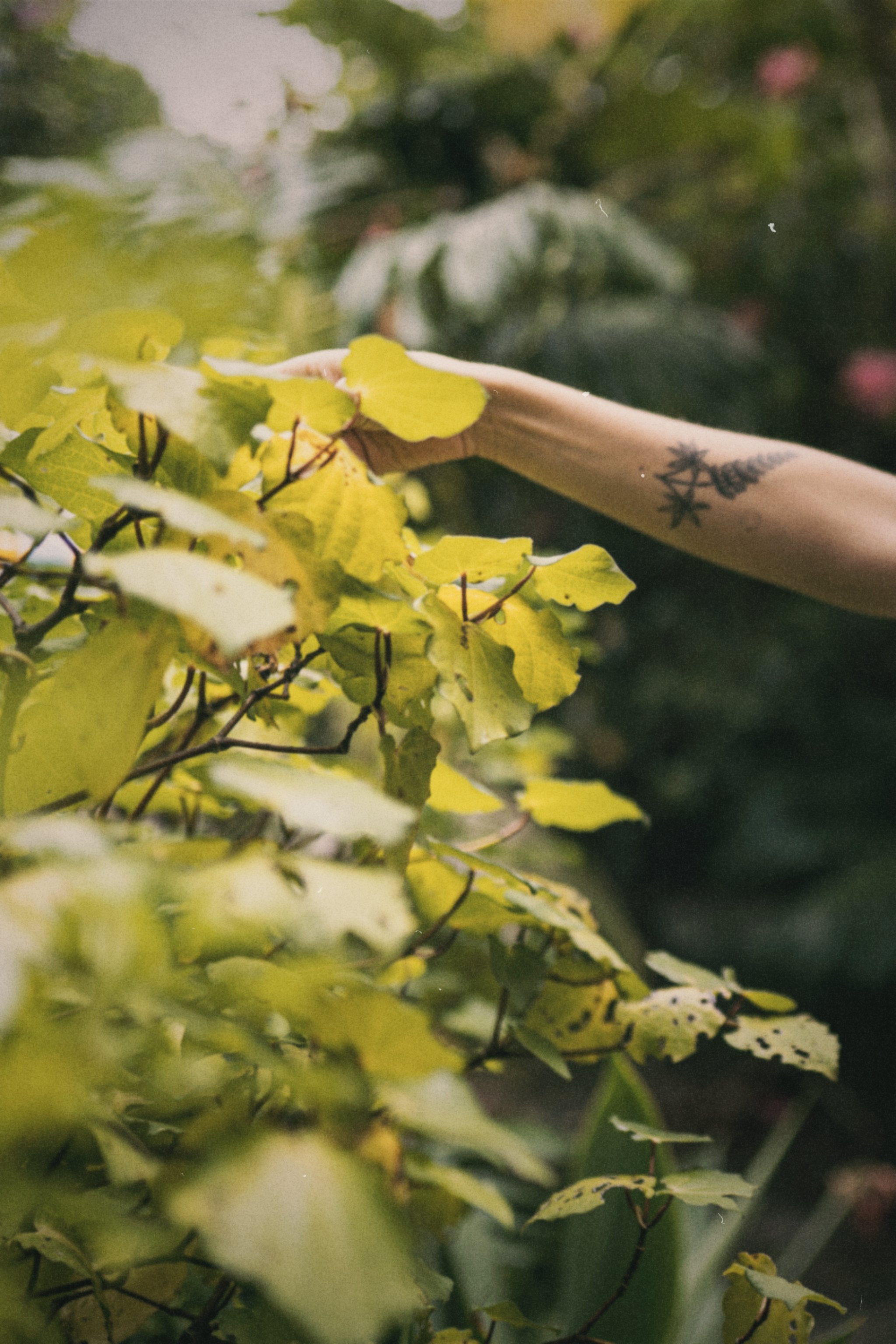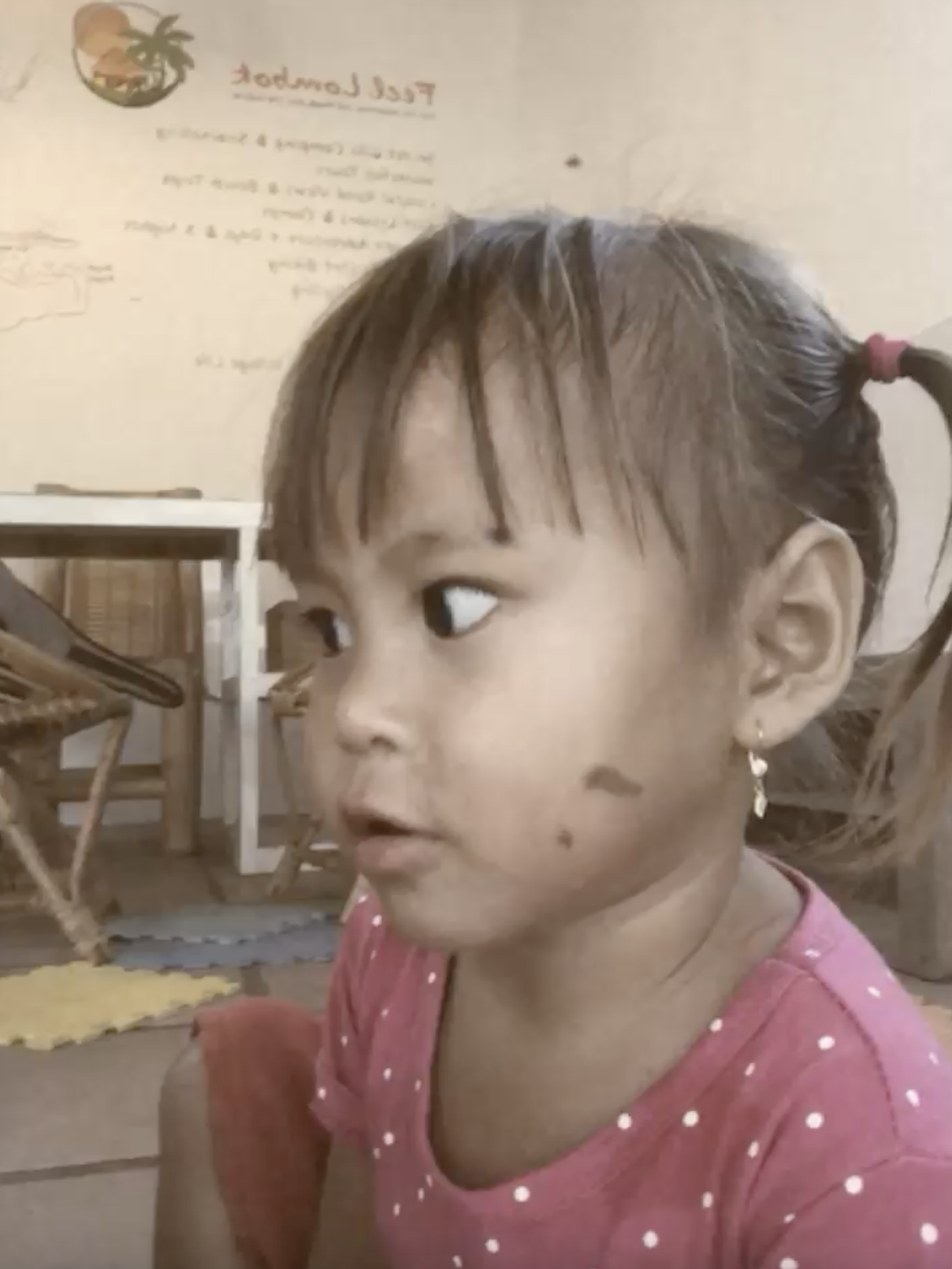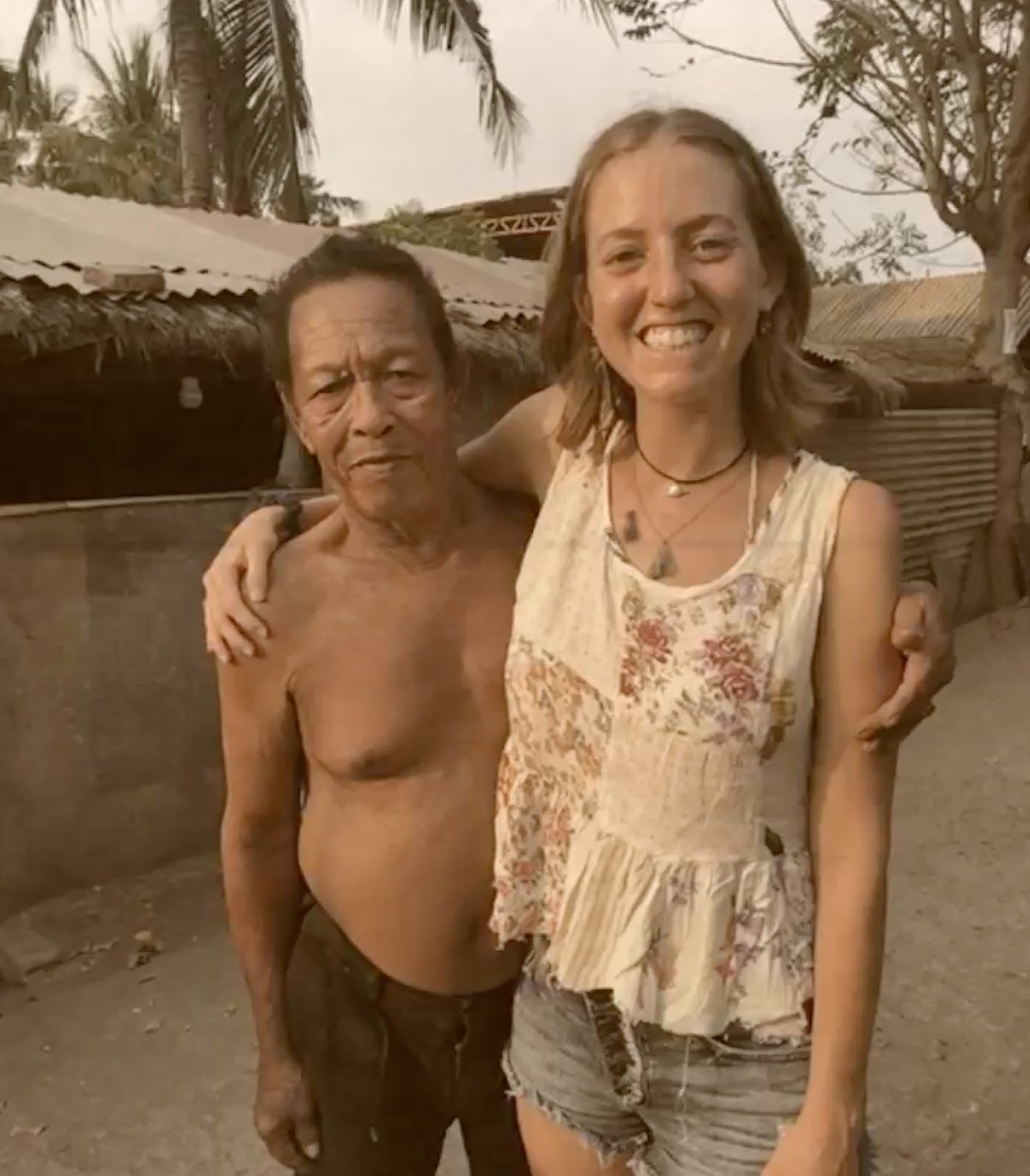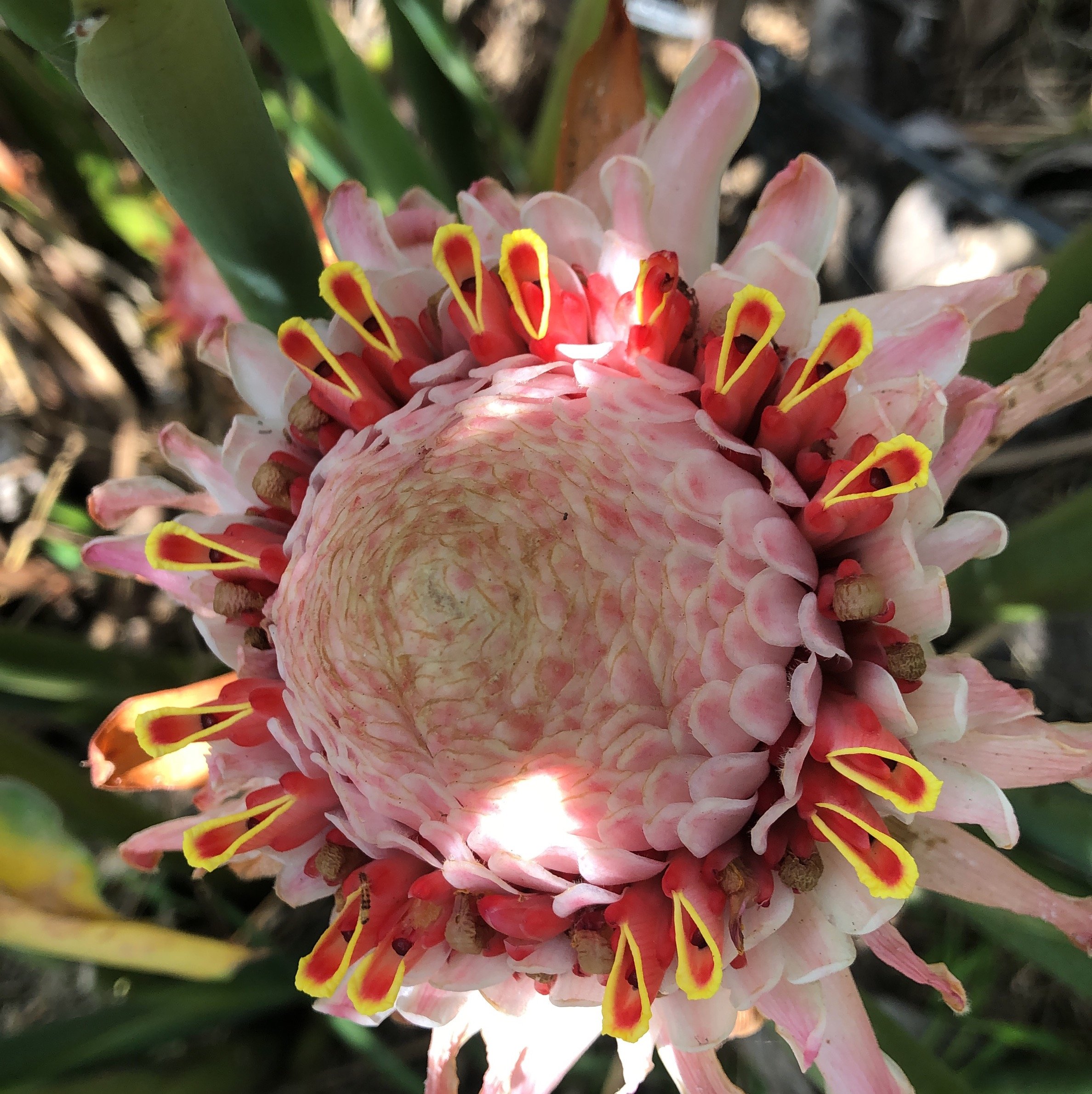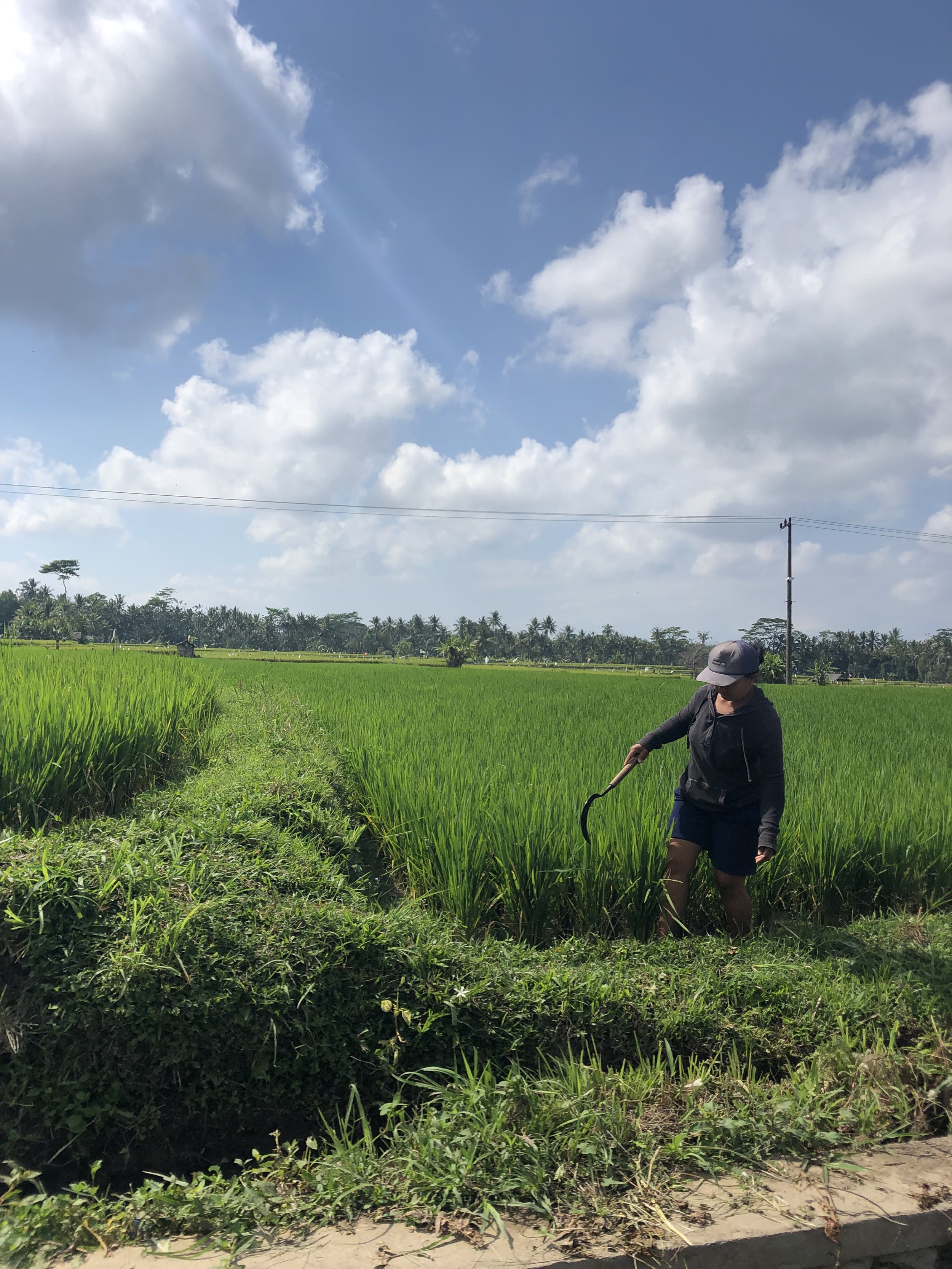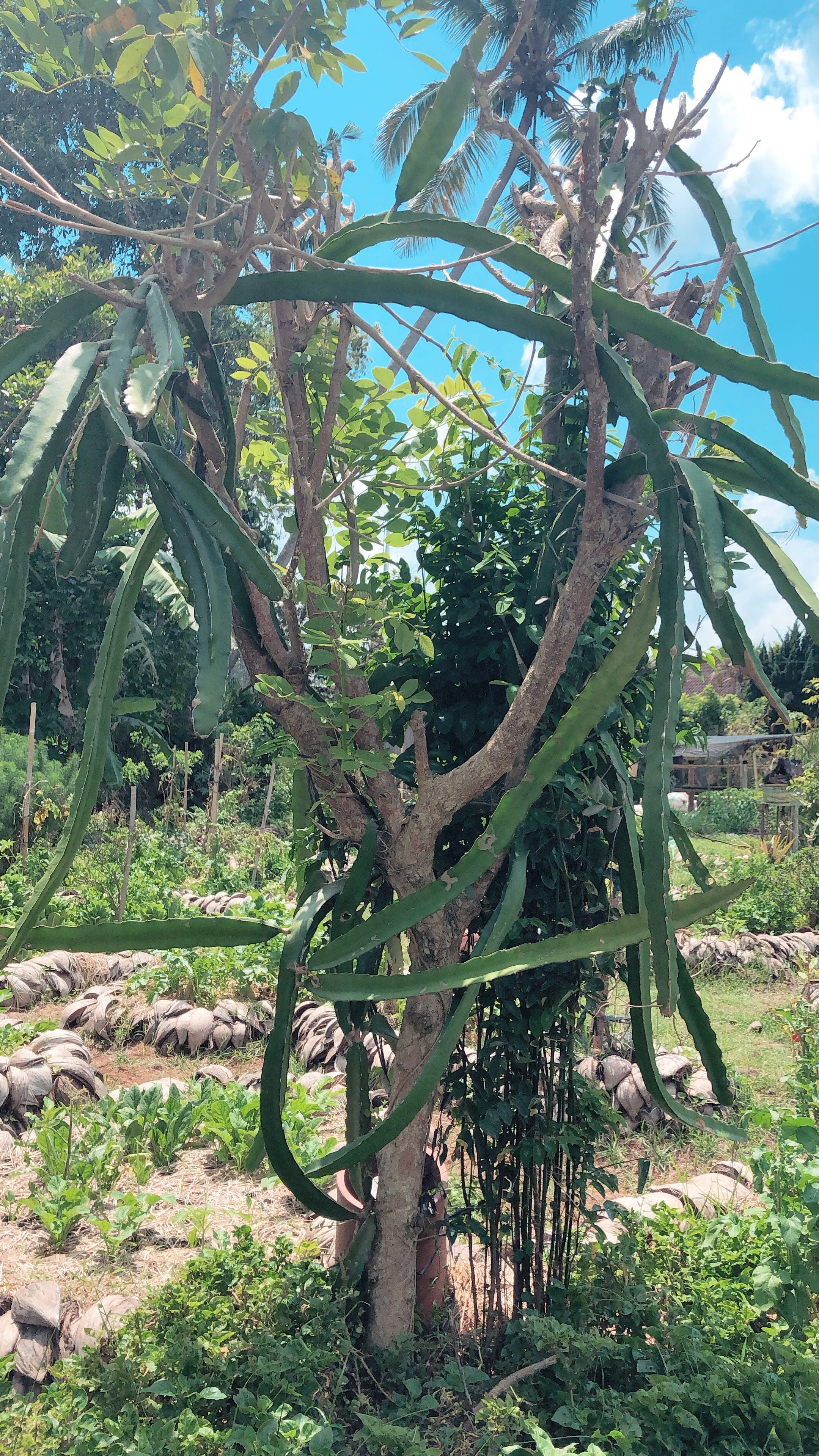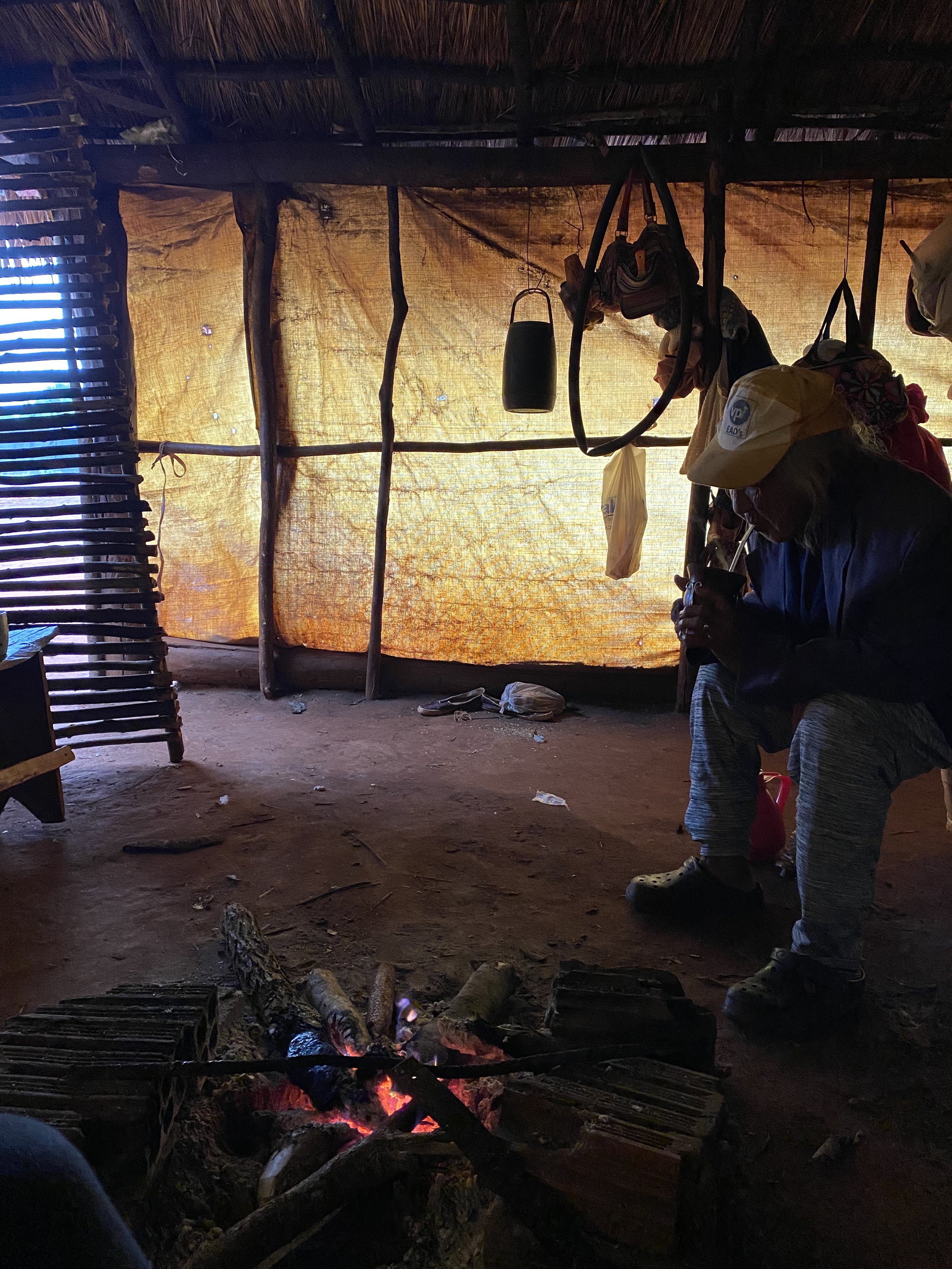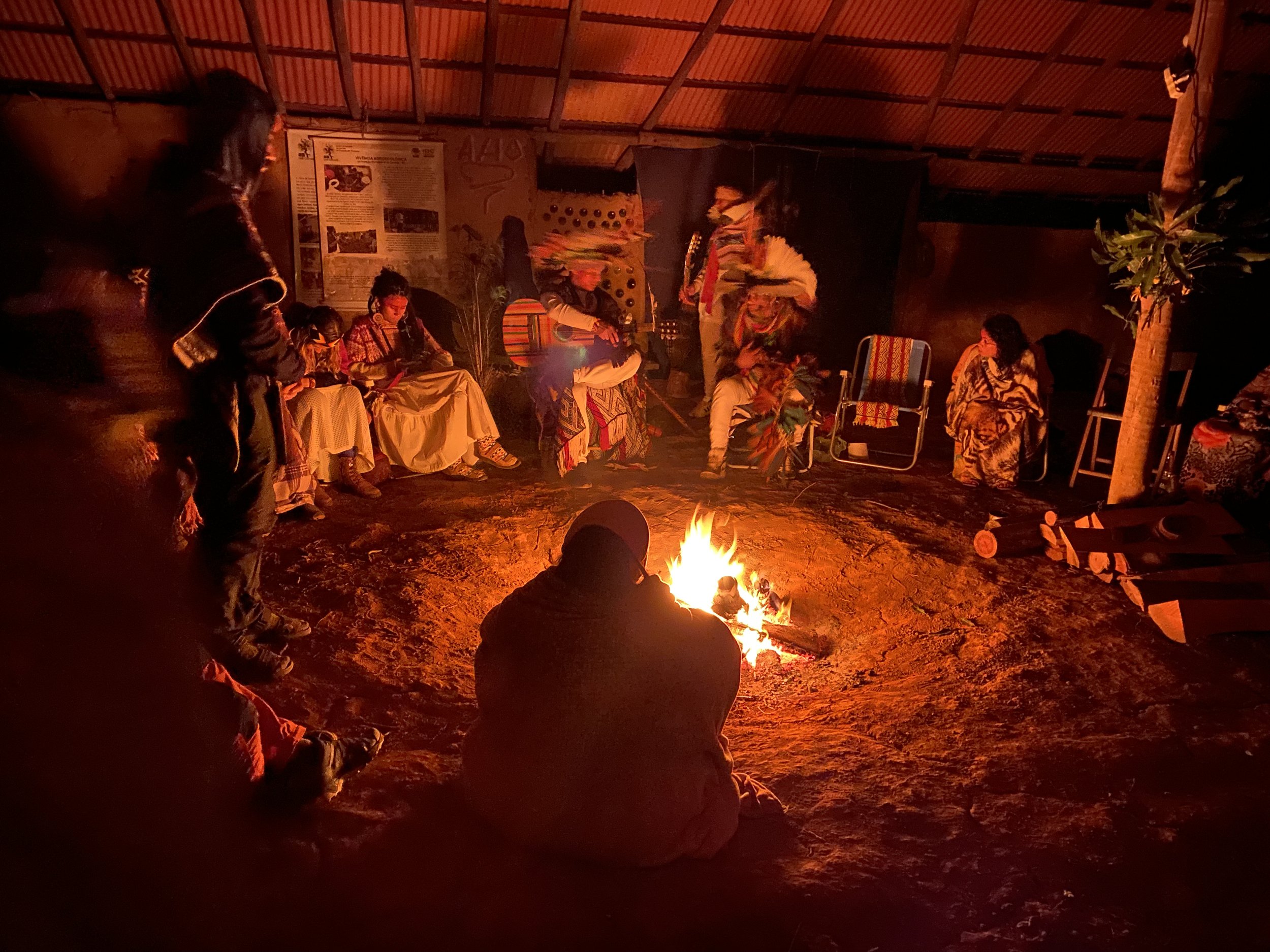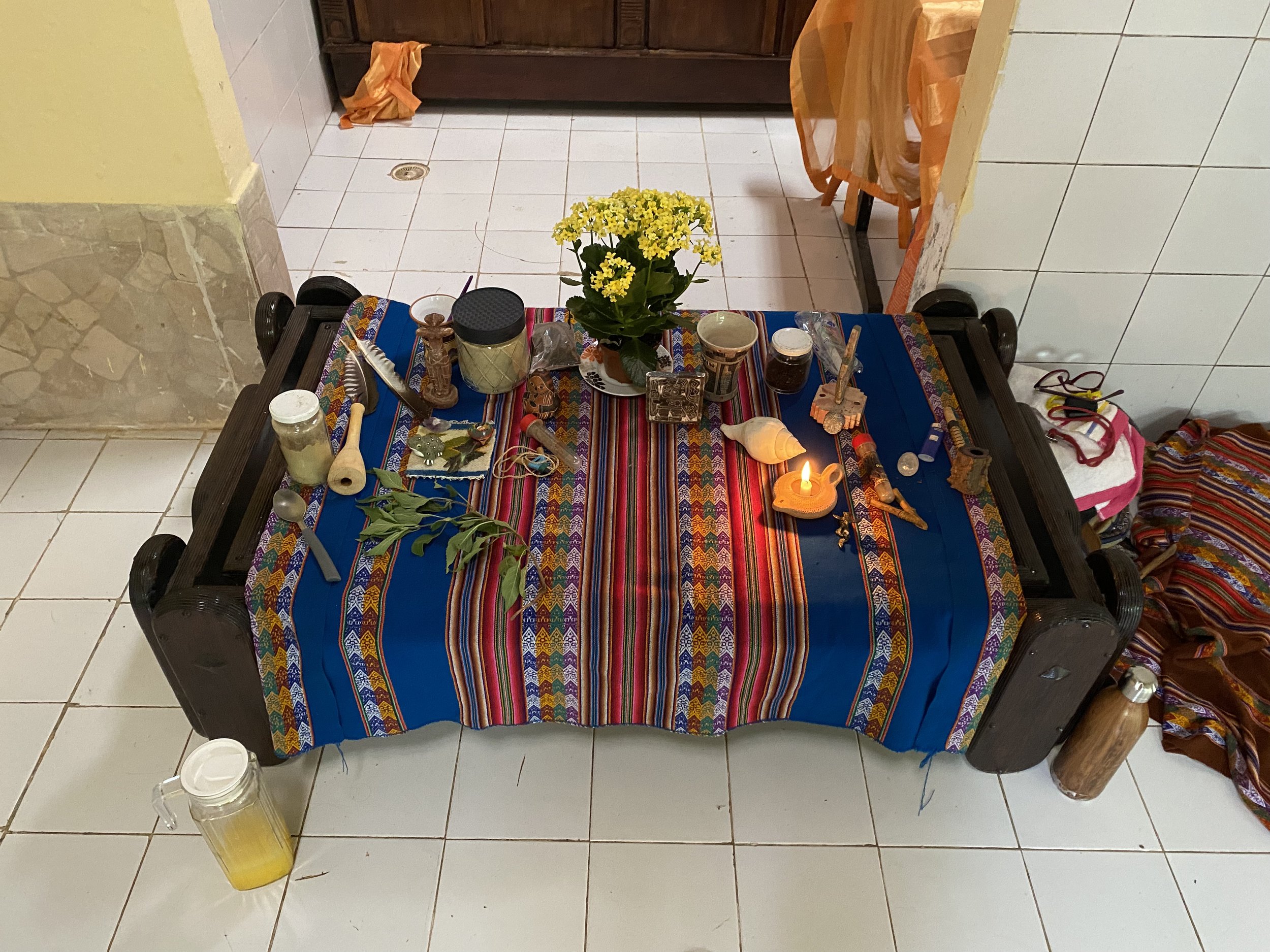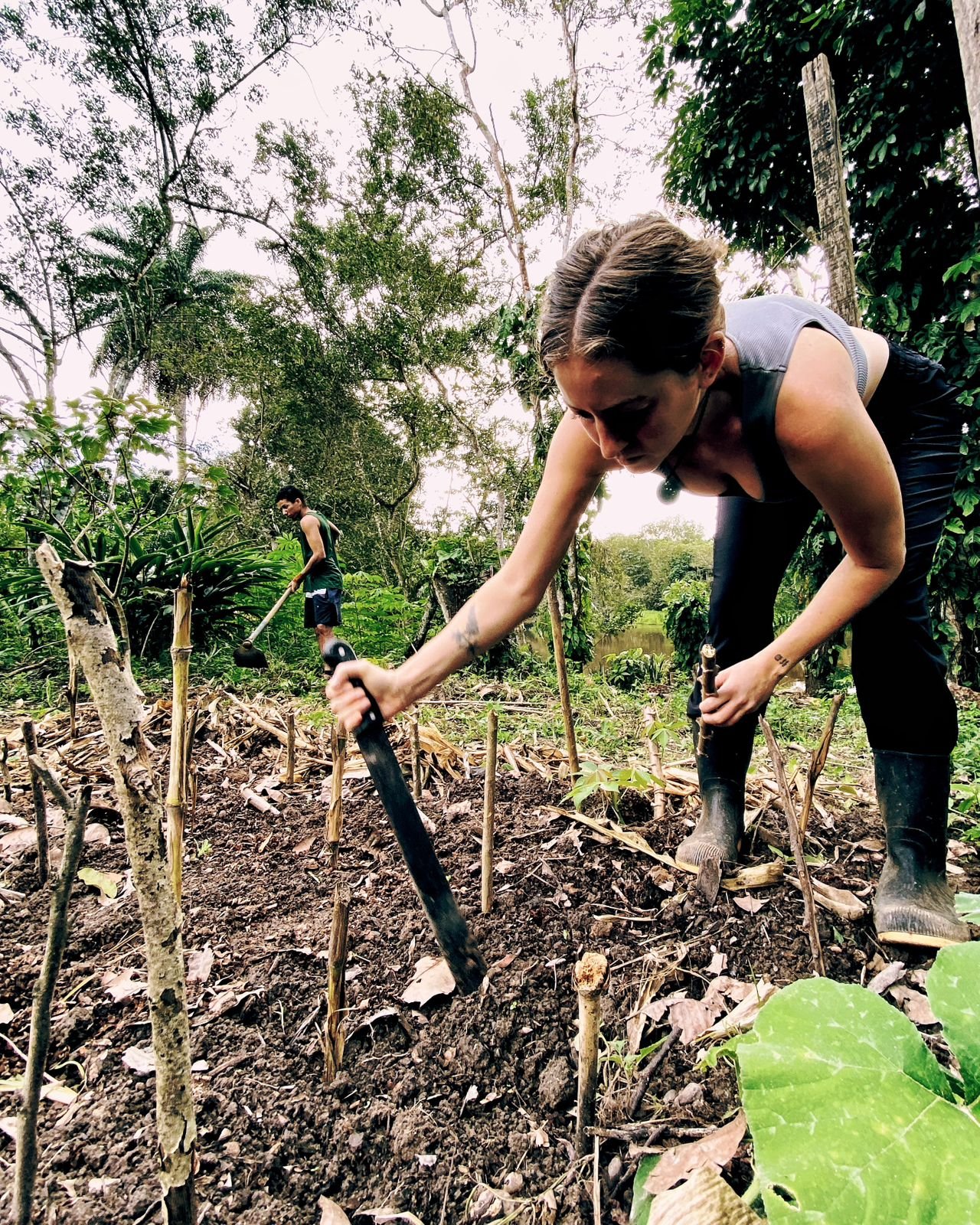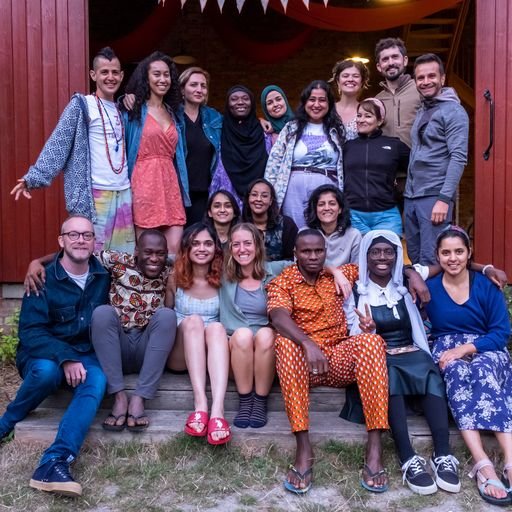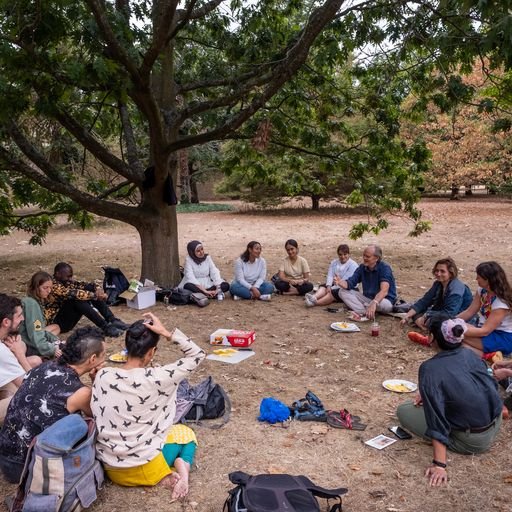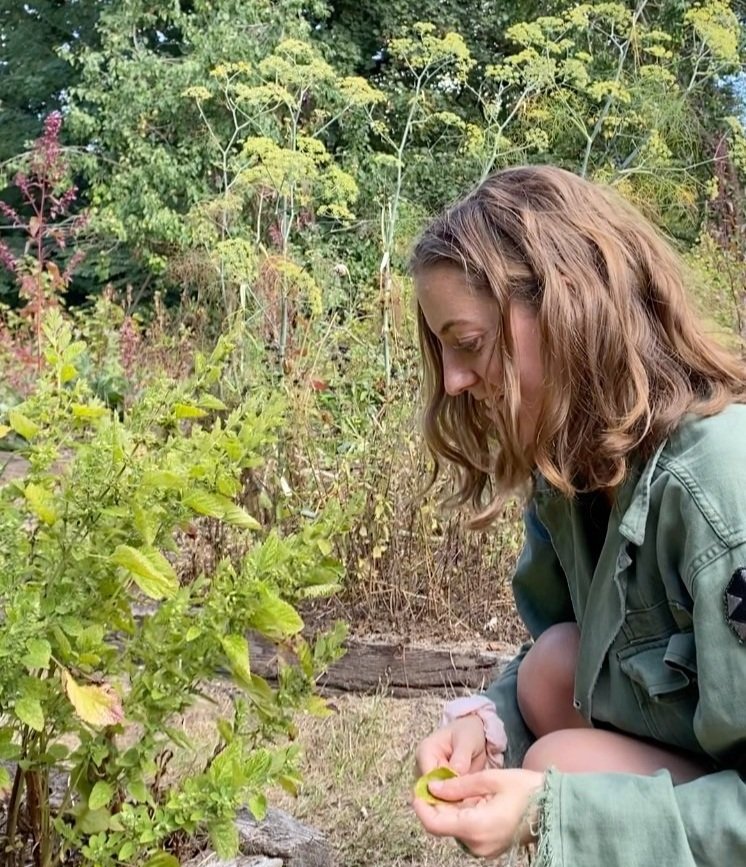Molly has traveled the world researching, studying and lecturing about ethnobotanical and environmental subjects across 6 continents. Additionally, she has been working as a clinical herbalist and writer for almost 10 years. Her self healing journey is a story of strength and resilience, which she has brought into her work across the globe.
Molly is a voice for the plants. They may not speak English, but she is able to translate.
Molly works with cultural competency and compassion, especially while working with marginalized groups and indigenous cultures. Her work has taken her around the world, from working as a mentor for underprivileged and homeless children from inner-city Los Angeles to working with Polynesian indigenous cultures in the Cook Islands, Indonesia, Australia and New Zealand. As a self taught wild forager, she was given permission to access sacred California lands by Chumash tribal members to learn foraging techniques. She has also worked on a variety of farms in the British Virgin Islands, Australia and across the USA; from creating sustainable food forests on cannabis farms in Santa Cruz to building medicinal herb gardens in Vermont. Her recent work with entheogenic medicine has taken her to Brazil and environmental storytelling to Angola, South Africa and Colombia.
Molly is fearless in the field and ready to travel to any corner of the globe to be a voice for the plants. She is here to honor indigenous stories and decolonize science.
Some more of her most prominent work includes:
Leading environmental activism in San Francisco - As the mere age of 18, Molly was Greenpeace’s youngest intern, where she helped create some of their most successful environmental campaigns. What began as an in-depth research presentation into oil corporations and their impact on the environment; led to the creation of a campaign against oil drilling in the Arctic National Wildlife Refuge. This humble campaign made its way to the Obama administration, where it was later instrumental in banning drilling from the region. She was also instrumental in building the campaign against palm oil plantations in Sumatran rainforest, which led her to work with Rainforest Action Network. In addition, alongside Greenpeace and 360.org, Molly helped organize the 2013 San Francisco march and protest of the Keystone XL pipeline over the Golden Gate Bridge, which attracted thousands of participants and media attention from around the world.
Examining elderberry cooperatives in Vermont - Working with marginalized groups in rural Vermont, Molly examined the feasibility of starting an Elderberry cooperative in Vermont. She interviewed core groups of farmers, buyers, growers and harvesters; analyzed market trends and created a needs assessment survey using qualitative research methods. She also worked with advisory committees to create open lines of communication with fellow partners by critiquing case studies and utilizing survey methodologies.
Conducting ethnobotanical research in Aotearoa - Molly has been doing ethnobotanical research in New Zealand for almost 5 years. She has been diving deeper into how Kaitiakitanga affects Māori’s relationship to plants in the Waikato region of Aotearoa. This work has been aimed to promote the symbiosis of ethnobotanical and indigenous knowledge, changes in modern legislation and shift modern perspectives of human-nature relationships. Through participant observation and plant identification, the emic research has discovered that Māori people are quite anthropogenically influenced, believing connections with spirits, plants and the earth relate to the importance of passing down their own cultural heritage.
Recording plant usage in Indonesia - Molly spent a month on Gili Air, an archipelago of three small Indonesian islands off Lombok. A predominantly muslim community, this island is known as a no-mans land for psilocybin consumption. During her time, she was asked by the local community to help document indigenous medicinal and culinary ingredients, especially used in cultural recipes by the local warung chef Sunny. Using qualitative methods, Molly recorded plant use using linguistic training to transcribe local terms, folk classification and interview skills. In accordance with intellectual property rights, this information was asked to be documented and left on the island for the community to have a lasting record of their own knowledge. The importance of this work comes from both the product and the process.
Researching and storytelling of entheogenic plant medicine in Brazil - In 2023, Molly worked with local partners and various indigenous communities to document and learn more about current Brazilian indigenous affairs and the globalization of entheogenic medicine leaving Brazil. From visiting with Kaiowa Guarani activists in Mato Grosso do Sul to living in a shamanic community in Bahia, to document intentional community lifestyles and research deeper conscious shifting medicines such as ayahuasca, wachuma, jurema and cabana, she has immersed herself with true journalistic and scientific integrity. She was also invited to participate with Huni Kui communities in various ceremonial entheogenic ceremonies to dive deep into sacred medicines such as Sananga, Hapé, Kambo, and Ayahuasca, to discuss and learn more about how to best honor and integrate these in the modern world. This work has led her to begin creating documentary series work and additional entheogenic research currently in progress, as well as, published written pieces.
Currently in process:
Joining The Wilderness Society and The National Geographic Society in Angola to document plant species, indigenous healing and local environmental conservation across the highlands of Angola near the Okavango Delta. Invited to the field as a storyteller to document through written word and film, highlighting the work being done to preserve water, culture and wild species. Scheduled for September 10 - October 25, 2024.
Original 2018 thesis work was subject in the Limpopo province of South Africa. Through Ecopsychology Africa, Molly was to live with indigenous communities to learn/research how they were sustainably interacting with plant life and keeping the land pure. Subject for 2024/2025.
Education
Spoonful Herbals 2016 - Certificate in Herbal Medicine
Pacifica Graduate Institute 2024 - Advanced Graduate Training Certificiate in Ecopsychology
University of Vermont 2016 - Bachelors of Science in Environmental Studies
Concentration in Holistic Health and Food System Justice
University of Kent 2018 - Masters of Science in Ethnobotany
Graduated with merit honors
Dissertation: How does Kaitiakitanga affect Māori’s relationship to plants in the Waikato region of New Zealand?
University of Oxford 2022 - GESA Cohort Member
The Global Environments Summer Academy (GESA) is the cornerstone of the Global Environments Network. GESA provides emerging environmental leaders who are concerned about human dimensions of environmental challenges with networking opportunities, communication skills and a venue for cutting-edge, multidisciplinary reflection. The most recent summer academy was held at Oxford in 2022, in collaboration with the University of Oxford’s Environmental Change Institute (ECI). Over the years, they have hosted a few hundred emerging change-makers from over 60 countries, selected from thousands of applicants from every corner of the globe. It spans local to global scales, diverse ecosystems and all geographical regions, exploring the most critical contemporary environmental issues from multiple perspectives including biocultural diversity, environmental history, political ecology, sustainability studies and personal activism.
Languages
English - Fluent
Spanish - Intermediate
Portuguese - Pre-intermediate
Te Reo - Beginner
Classes/Courses
Earth Beat Festival - Shifting Consciousness Through Nature Connection: A solution to climate issues - a workshop taught about how altered states of consciousness could be a solution to promoting sustainability and healthier relationships to the earth.
Inner Tide - Water, Earth, Fire, Air - Cultivating a Deeper Connection to the Elements - a virtual course taught on the spring equinox to teach participants how to connect to the four elements and the natural world.
The Alchemists Kitchen - Taught monthly virtual classes surrounding seasonal topics such as medicinal mushrooms, ethnobotany, sustainability, ecology, herbalism and psychedelics.
Traditional Gastronomy - Guest teacher at Mia Wasilevich's Transitional Gastronomy Course, teaching students how to make herbal elderflower hydrosols and wild foraging techniques.
University of Vermont - Assistant professor for International Environmental Studies course. Taught college 250 students during weekly labs/discussion seminars, led field trips, implemented lab activities, and graded weekly homework assignments.
Interviews
The Alchemist’s Kitchen - Interview about work and relationship to mushrooms.
Passion Passport- Interview about ethnobotany research work in New Zealand and conservation career goals.
Roots and Grains - Interview about health career and environmental sustainability.
Avasol - Multiple interviews about career, ethnobotany, environmental activism and work with sustainable brands.
Podcasts
Soundfood - Episode 30 // FLORA, FAUNA & FOREST: Communing with Plants and the Restorative Powers of the Earth with Molly Helfend
Torey’s Studio - Episode 10 // Letting Desire Lead Your Life with Molly Helfend




